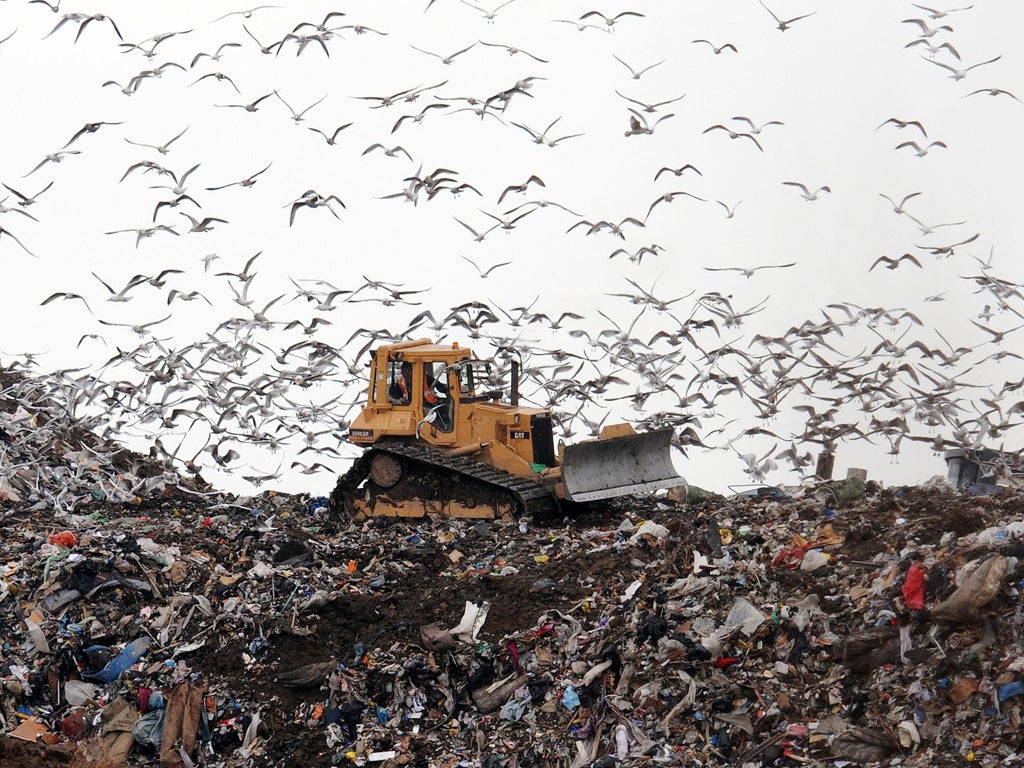Plane fuels made from industrial waste to get UK government backing
The contents of bins and landfill sites across the country could end up as fuel to power planes

Passengers travelling from British airports could be flying in planes powered by industrial waste in the near future.
The Government said it plans to invest £22m into research for alternative, low-carbon fuels designed to turn everyday waste from landfill sites into fuel for aircraft and lorries.
The government scheme could finance up to five new low-carbon fuel plants, with 70 groups already earmarked for funding.
According to the Department for Transport (DfT), vehicles powered by waste could use up to 90 per cent less carbon than traditional fossil fuels.
Transport minister Jesse Norman said: “We are making funding available to innovative businesses which will lead the way in developing alternative fuels that are efficient, sustainable and clean.”
She added that the Government wants “every new car and van in the UK to be zero emission by 2040” and that with traditional fuel consumption set to rise, “we must promote environmentally friendly alternatives.”
The DfT said it believes waste material fuels could be worth up to £600m a year to the UK economy by 2030, supporting up to 9,800 jobs.
The UK isn’t the first country to consider waste fuel as an alternative source of energy.
For decades, Sweden has recycled waste – often buying it from other EU countries – and transformed the energy used from burning the waste to heat homes during the bitter winter.
In the US, researchers reportedly teamed up with Richard Branson’s Virgin Atlantic last year to create fuel from industrial waste gases, following an estimation by the International Energy Agency that global petroleum consumption will increase 38 per cent by 2040.
Subscribe to Independent Premium to bookmark this article
Want to bookmark your favourite articles and stories to read or reference later? Start your Independent Premium subscription today.

Join our commenting forum
Join thought-provoking conversations, follow other Independent readers and see their replies